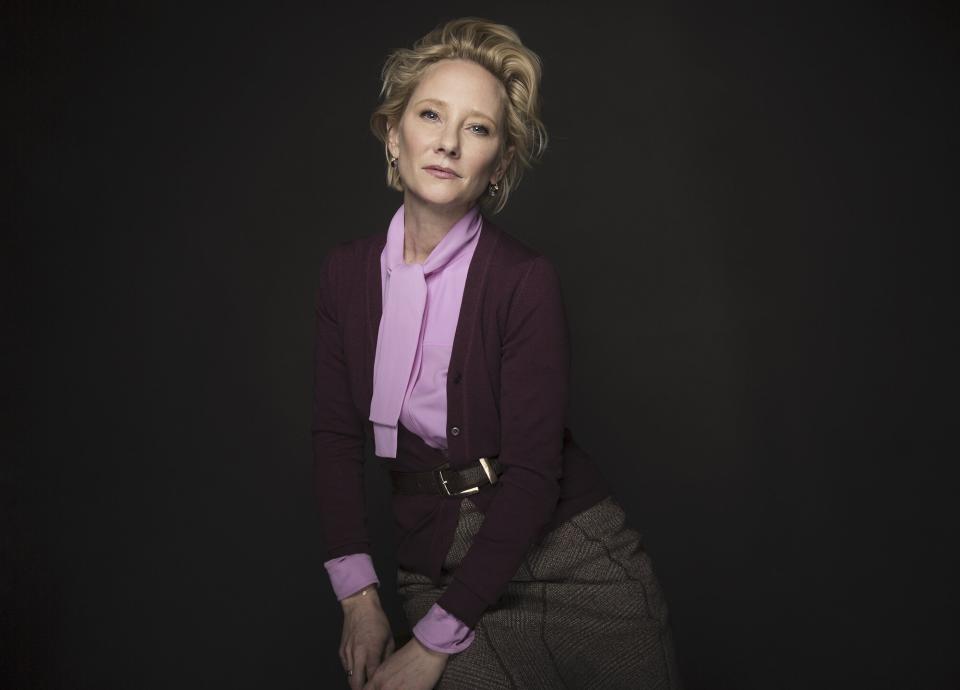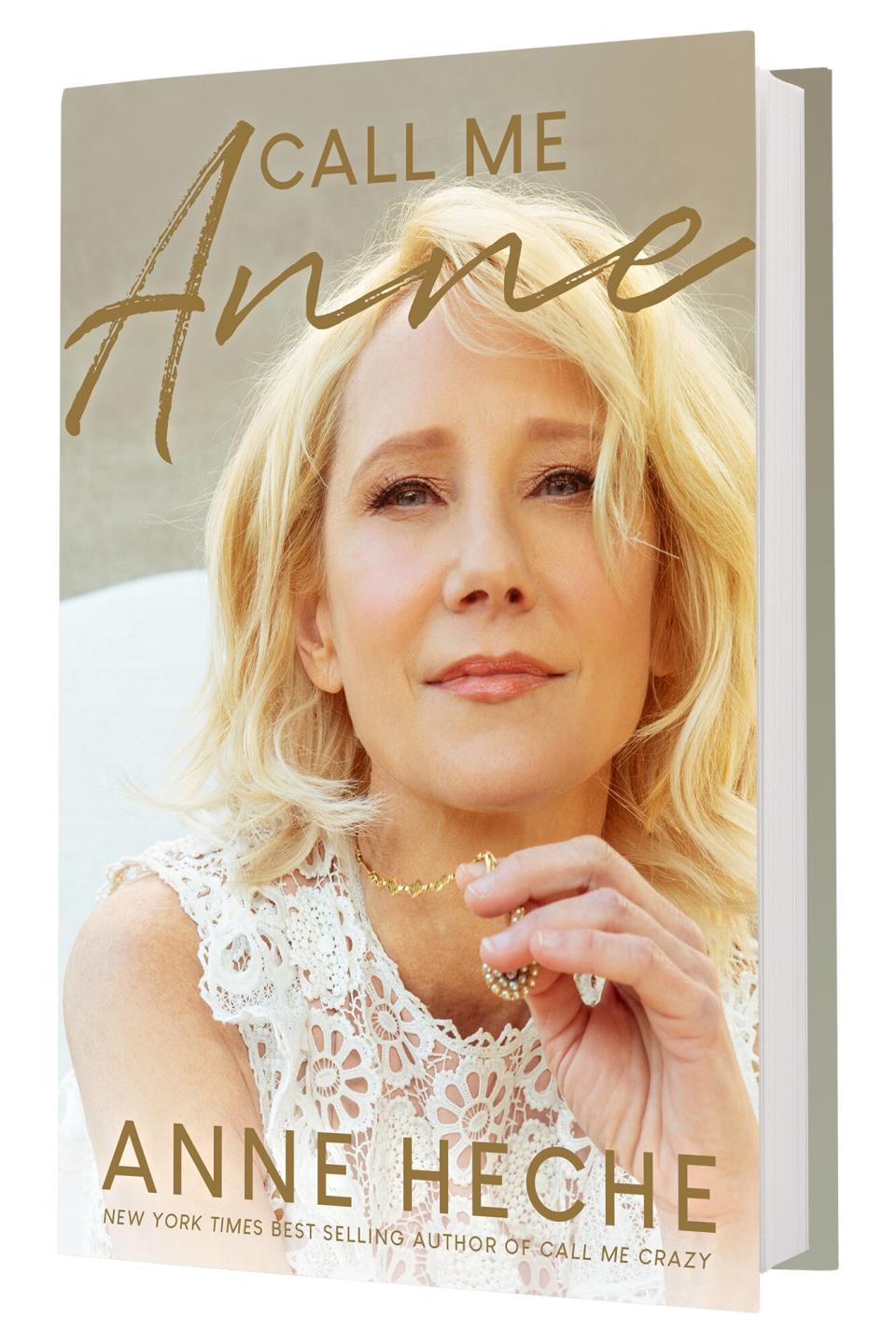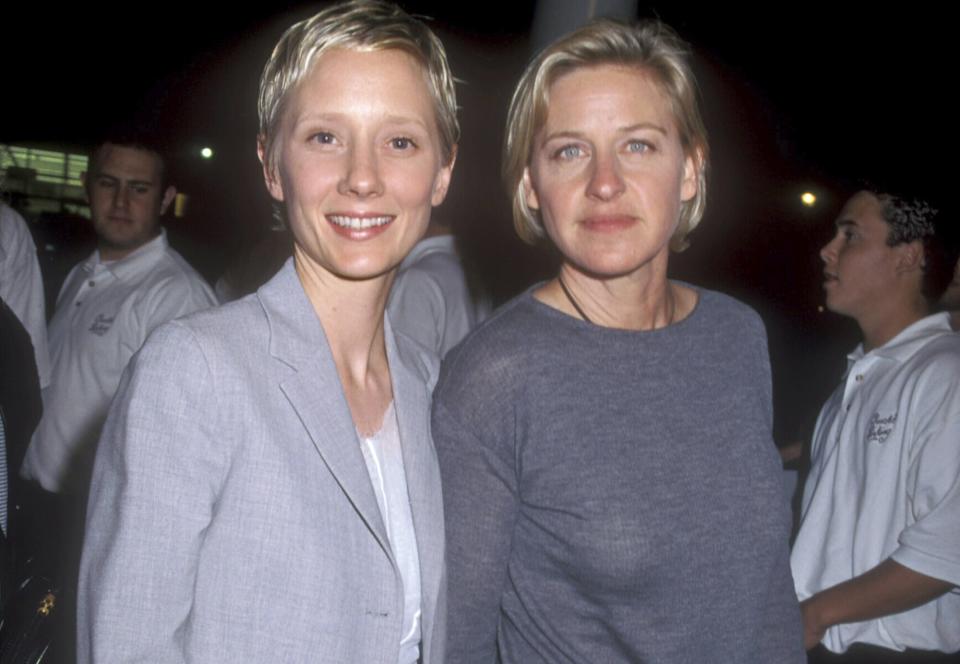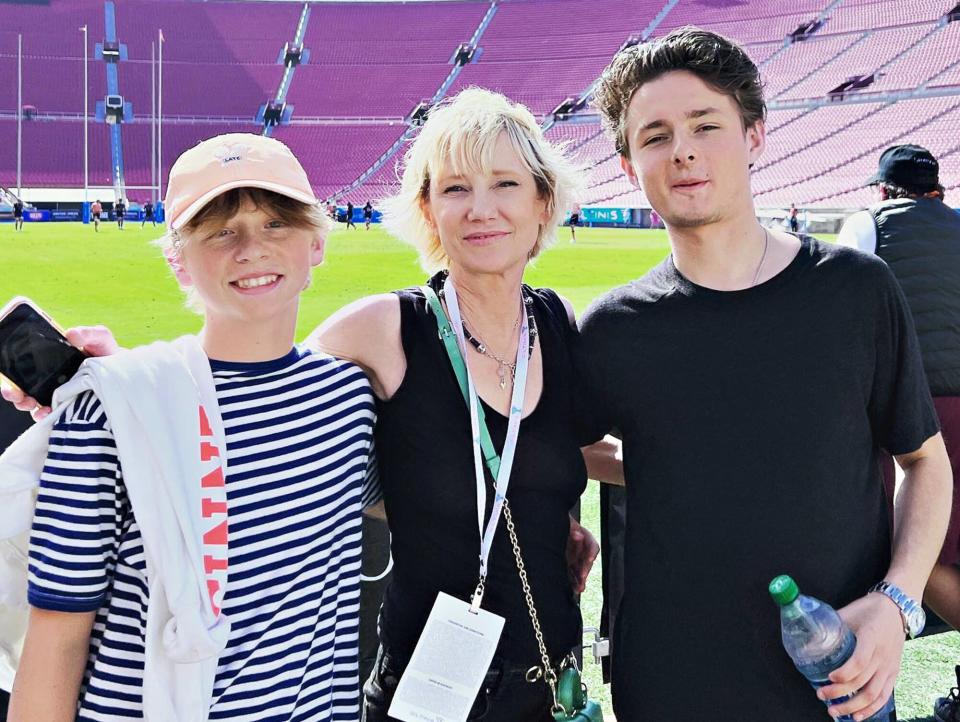First Look at Anne Heche Memoir Released After Her Death: How She Found Peace After Childhood Abuse
- Oops!Something went wrong.Please try again later.
Dotdash Meredith and Yahoo Inc. may earn commission or revenue on some items through the links below.

Taylor Jewell/Invision/AP/Shutterstock Anne Heche
When Anne Heche died in August at age 53 from injuries sustained in a Los Angeles car crash, she left behind two sons — Homer and Atlas — an Emmy-winning acting career and an unfinished memoir. She also left behind a layered, if at times labyrinthine, personal narrative.
Heche was best known for her work on screen, particularly in the 90s films Wag the Dog and Six Days, Seven Nights, as well as the TV series Men in Trees. She was also known for her three-year relationship with Ellen DeGeneres.
She took it all on — her experiences with fame, being sexually abused by her father and her relationship with DeGeneres — in her 2001 book Call Me Crazy. In her follow-up, Call Me Anne, excerpted exclusively in this week's issue of PEOPLE, Heche set out to show that her past — and pain — did not define her.
Her most recent work was playing herself, and sharing more about herself, in her podcast Better Together. She was ahead of her time in the way she viewed the world, says her friend and podcast cohost Heather Duffy, who was by Heche's side when she died and completed the new book after.
Remembers Duffy, 52: "She was perhaps even constrained by this mortal world. And she never got credit for the change she created."

Anne Heche's new book
RELATED: Anne Heche's Son Thanks Fans for 'Love, Care and Support' Ahead of Posthumous Memoir Release
When Heche began her first and only relationship with a woman in 1997, the sight of her and DeGeneres holding hands at the White House sent shock waves through the world. It also hindered Heche's promising film career, but, Duffy says, that three-year relationship moved the needle for how we view same-sex relationships — change we can see clearly today.
Heche writes: "In 1997, I began a relationship with Ellen DeGeneres and was on the set of my first starring role in a big-budget movie, Six Days, Seven Nights. I was called into my costar Harrison Ford's trailer one lunch break within the first week of shooting. I was met with the sight of director Ivan Reitman and Harrison sitting on one of two white pleather sofas. I hesitantly sat on the opposite white pleather sofa.
They had seen the evening news. Rumors were reported that Ellen and I were pregnant. Our 'pregnancy' was everywhere. They showed me this as proof of why this openness about my relationship was becoming a pain in the ass for them. Why, Ivan asked me, can't I just be like Jodie Foster? (I didn't know what that meant. 'Everybody knows it,' he explained, 'it' being her sexuality. 'She just doesn't talk about it.')
I found it odd that anyone thought I could get pregnant so quickly with a woman, but even odder, that they cared so much about the perception that I was going to ruin a movie that hadn't even been shot?

Barry King/WireImage Anne Heche and Ellen DeGeneres
RELATED: Anne Heche Called Her Sexuality 'Alien' in Memoir Written Before Her Death
The most devastating thing of all, through it all, from the first week with Ellen to writing my first book, Call Me Crazy in 2001, was that no one bothered to ask me about any of it. No matter how many articles were written about me, no one asked me why I had done what I did. What was the force that would have made a human being risk everything they'd been promised, their entire career? Why? Why would I have done that?
Since nobody asked, I will tell you why. Because I had lived in a family that was built upon lies. My father hid his sexuality his entire life. When I met Ellen and she was open and honest about her sexuality, it was the most attractive and alluring quality in a person that I had ever seen. I was mesmerized by her honesty, and that is why she was the first and only woman that I ever fell in love with. I was in love with a person who had chosen to leverage her very public persona in support of the cause she was standing up for, which was LGBTQ+ rights for everybody on the planet who wanted them.
Love became my destiny."
Never miss a story — sign up for PEOPLE's free daily newsletter to stay up-to-date on the best of what PEOPLE has to offer, from juicy celebrity news to compelling human interest stories.
"Her life was bookended with a lot of pain," Duffy says. "Anne was homeless in her youth and abused by her father, and then to make it to Hollywood and be such a success and then to be treated that way by the press and the public… being blacklisted. It never jaded her. It never made her less optimistic. It never made her untrusting of others. She was filled with kindness for others."

Anne Heche with her sons
RELATED: Anne Heche's Podcast Co-Host Shares Emotional Tribute After Actress's Death: 'Fly Free, My Friend'
Even after Heche's death, Duffy still feels connected to her. "A while back, we were talking about the afterlife, and I said, 'If you die, you would probably haunt the s--- out of me,' and she said, 'You would definitely feel me.' "
And that connection was no different for Duffy when she was by Heche's side in the hospital following the car accident.
"I knew at the moment she decided she was gonna go," she recalls. "I said to her, 'I got you. I'm here for you, I'm here for your boys.' She can fly free now. She is soaring and does not need to be contained anymore. That gives me a lot of peace, knowing that she is finally free to be as big and bold as she deserves to be."
For more on Anne Heche's new book, pick up the latest issue of PEOPLE, on newsstands Friday, or subscribe here.

